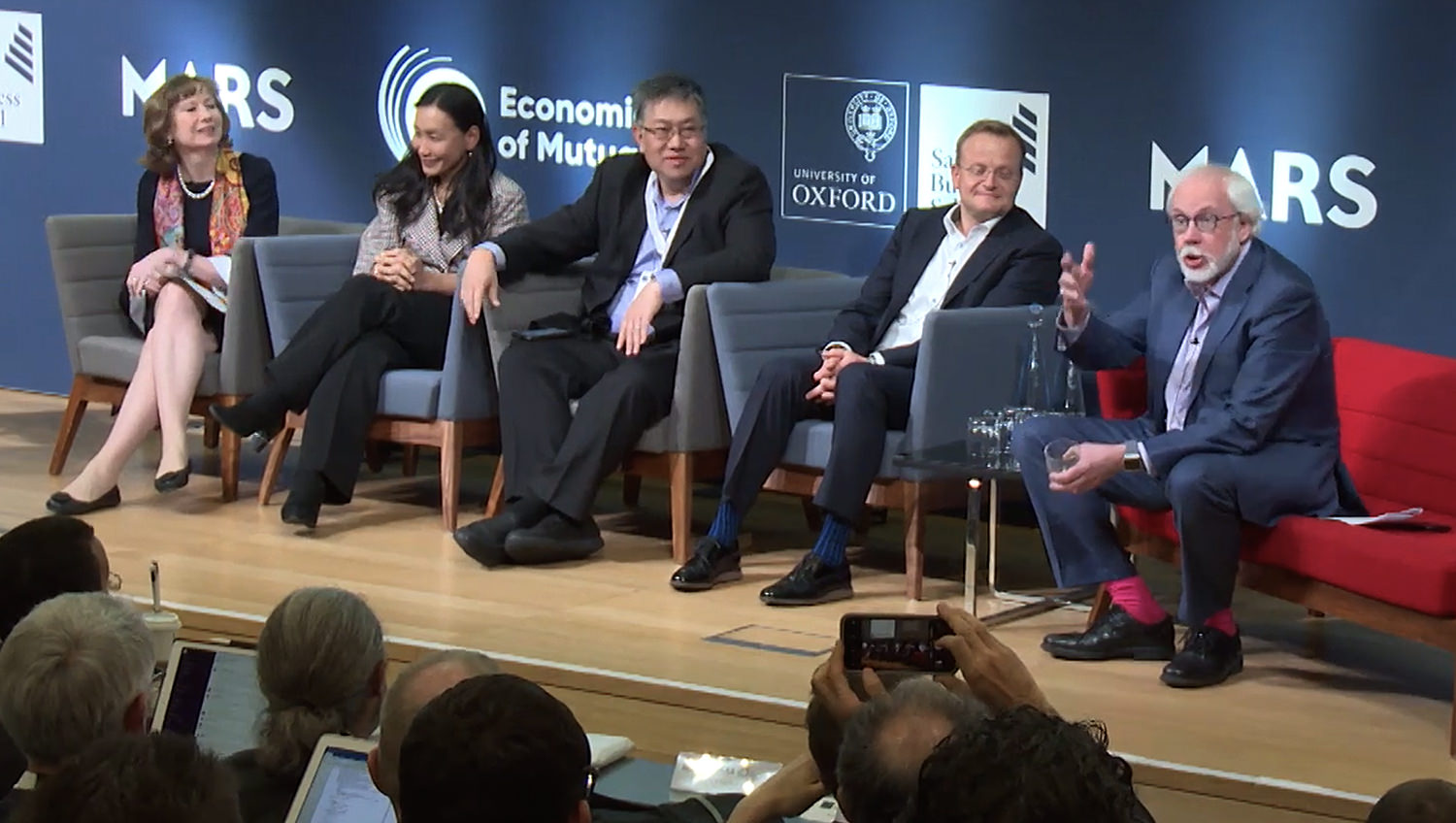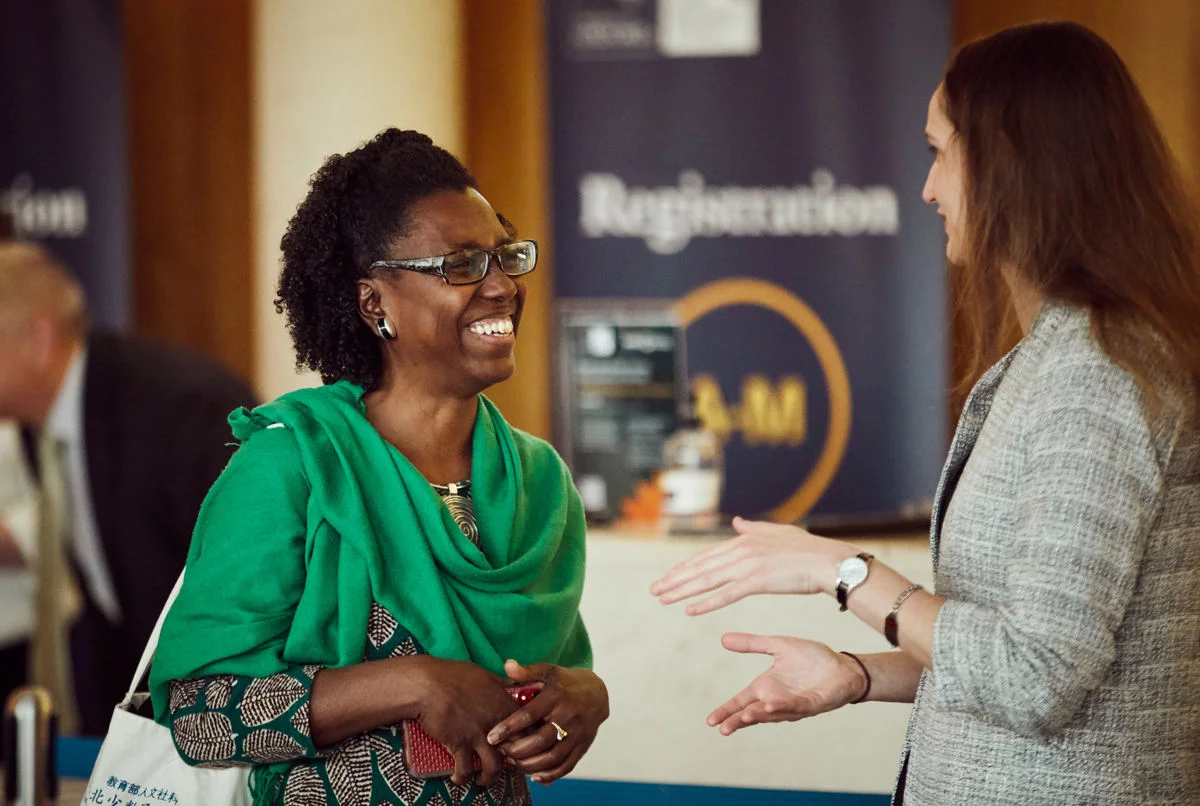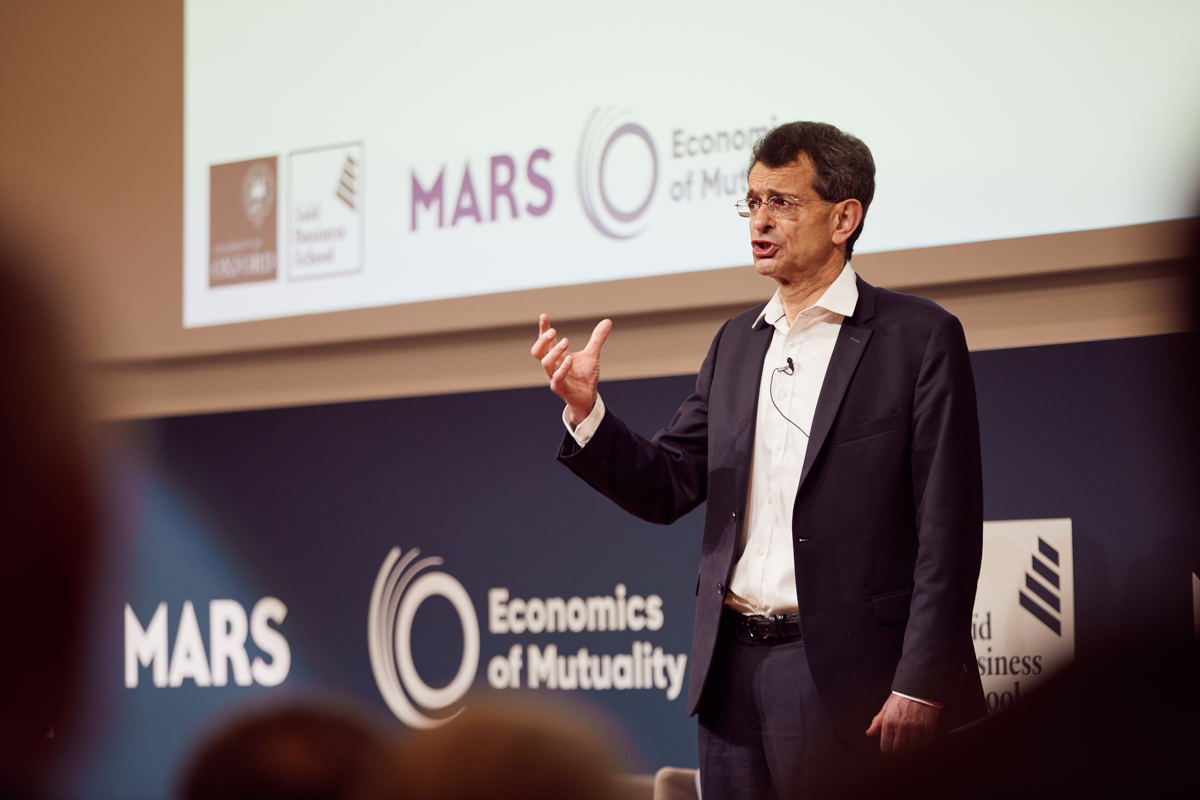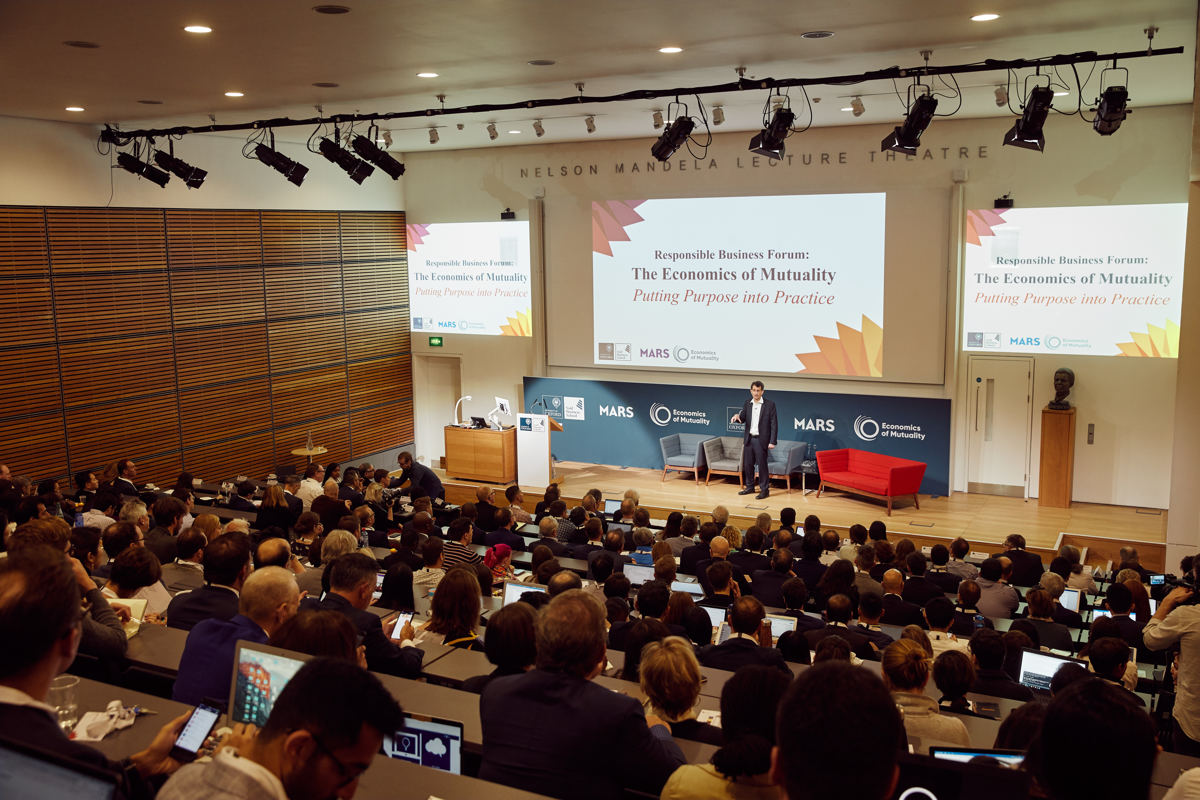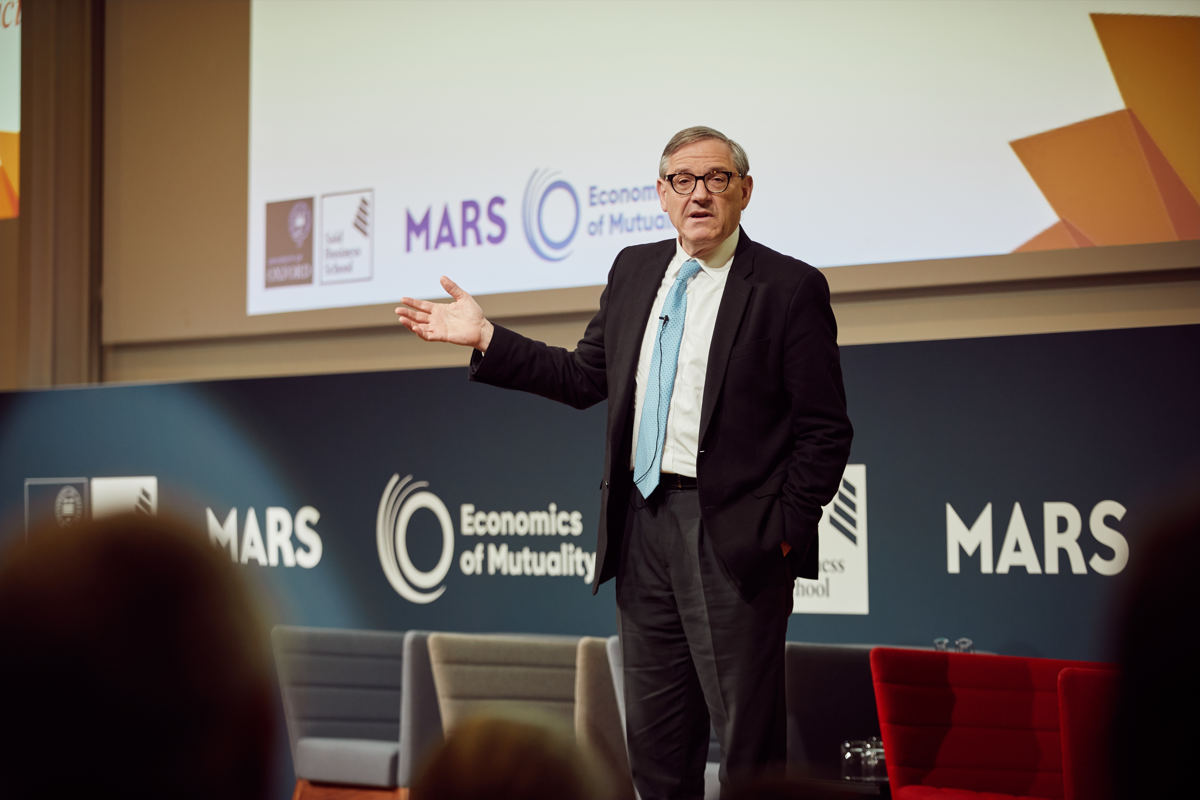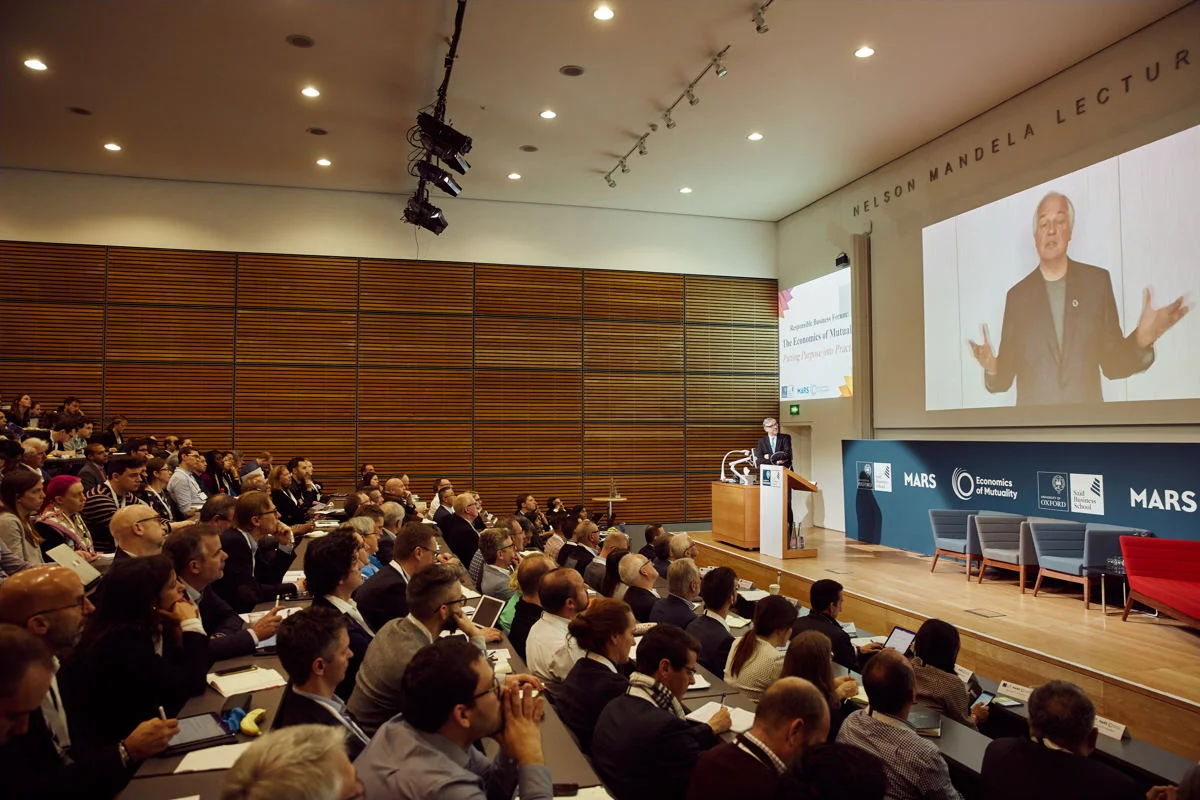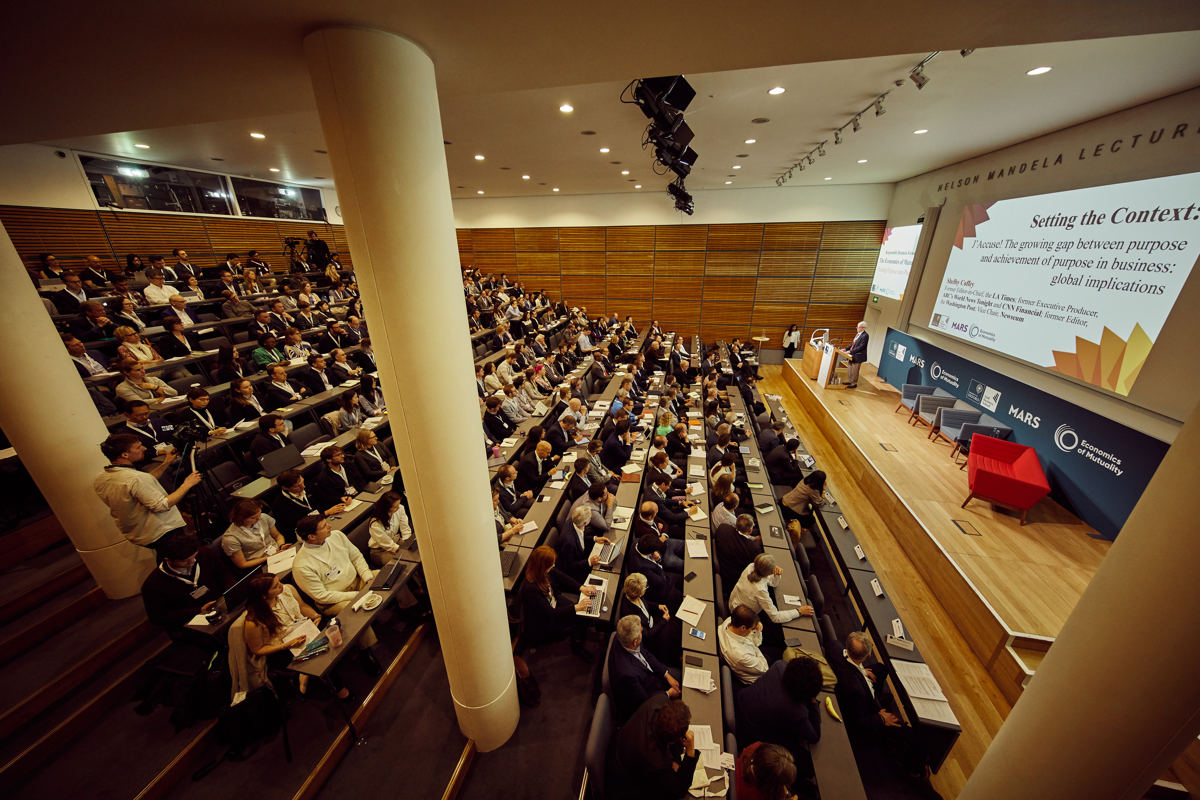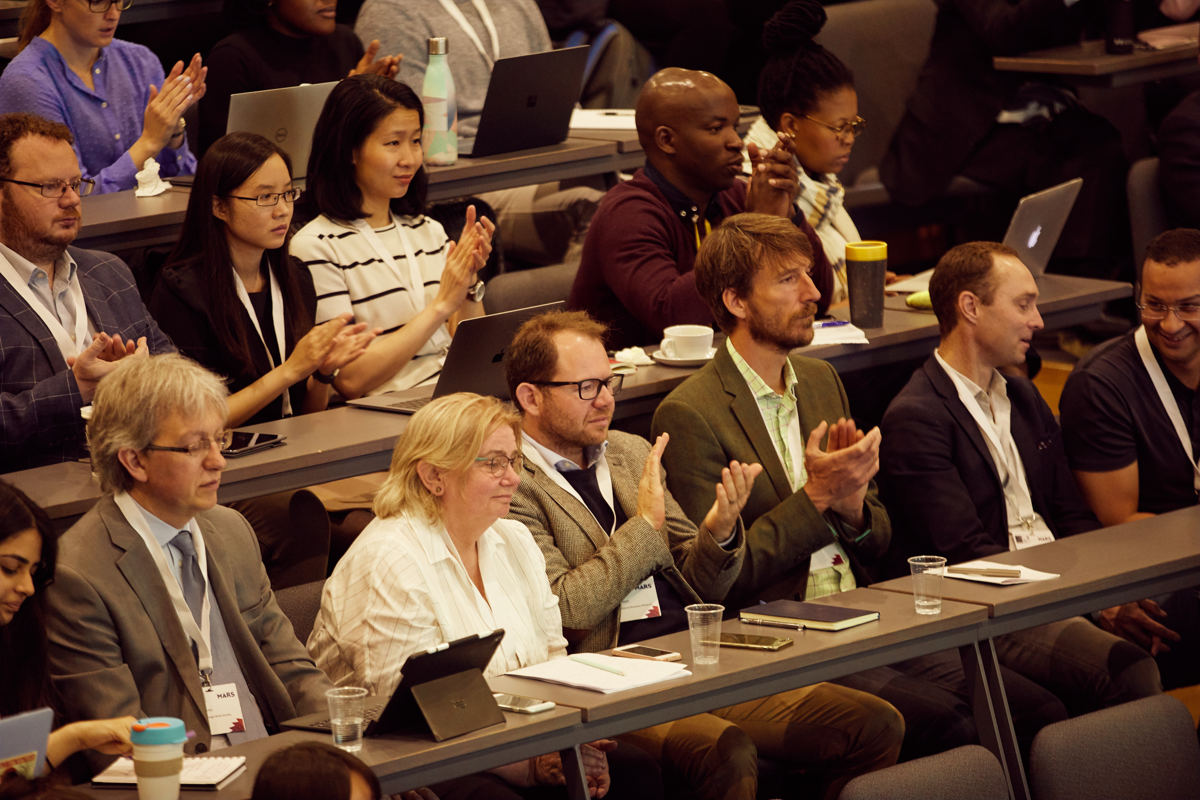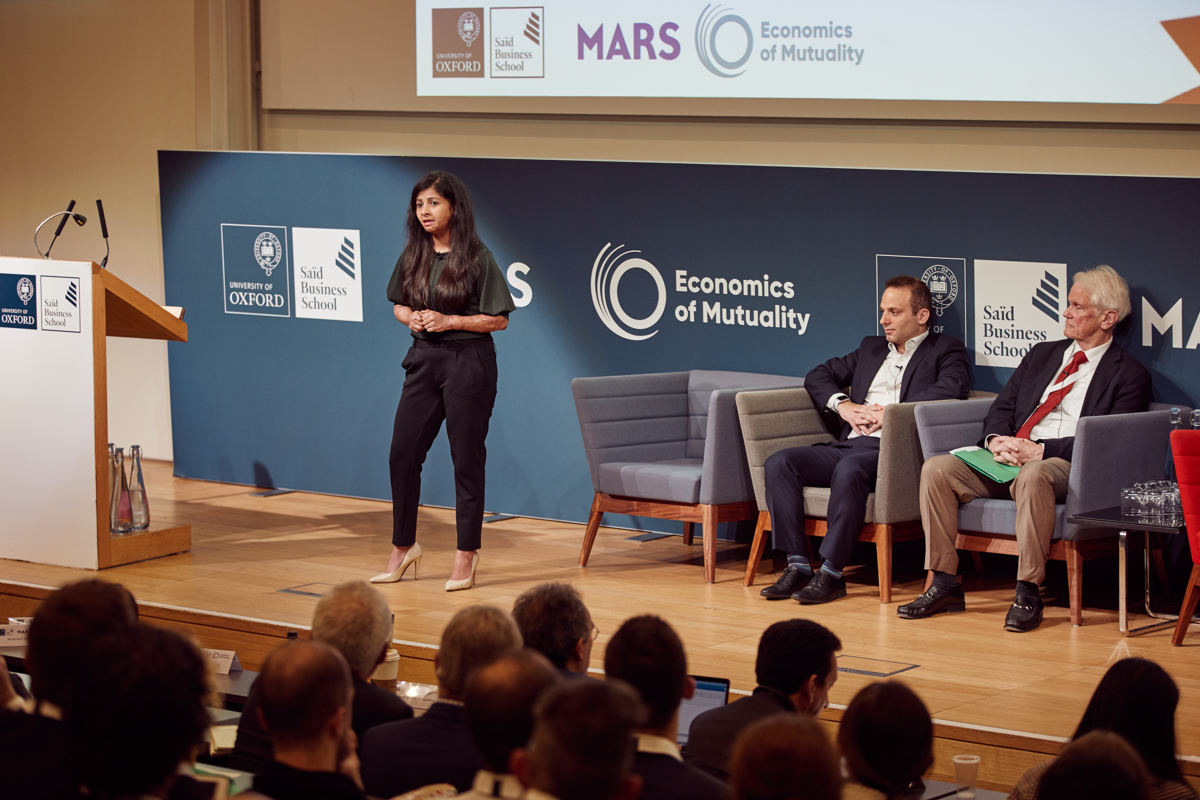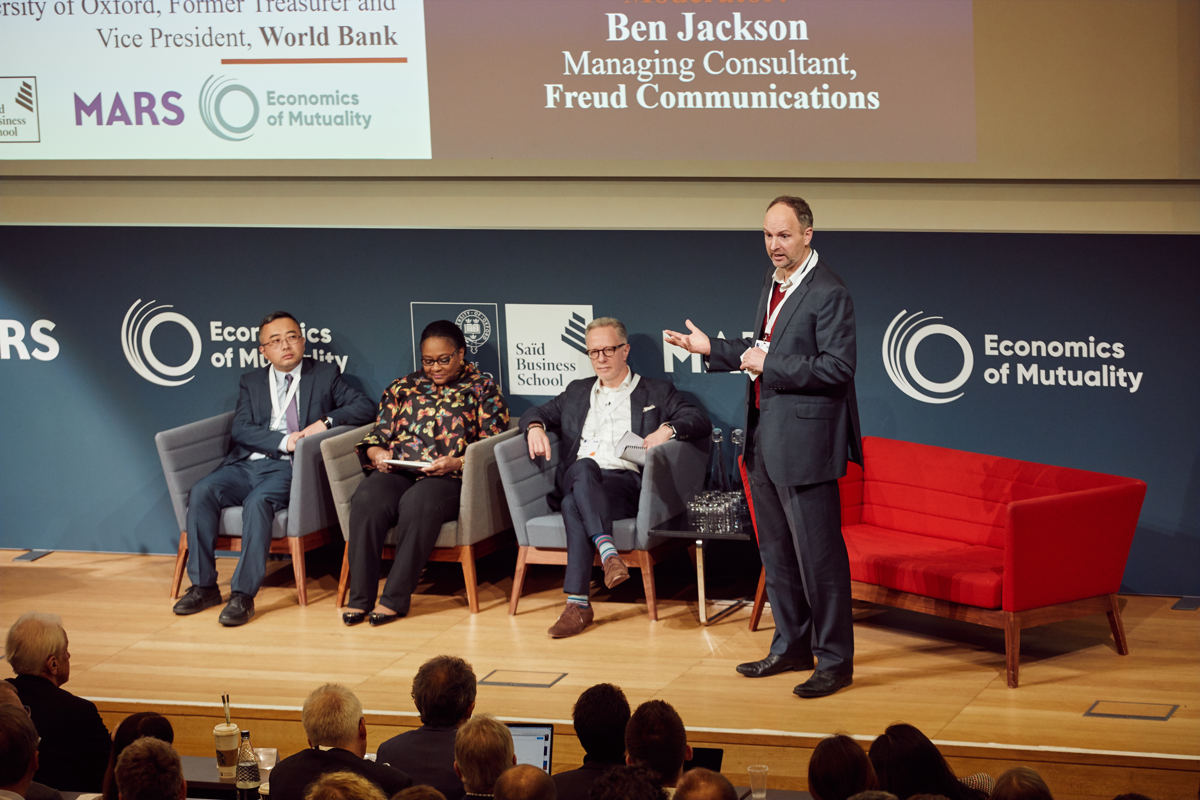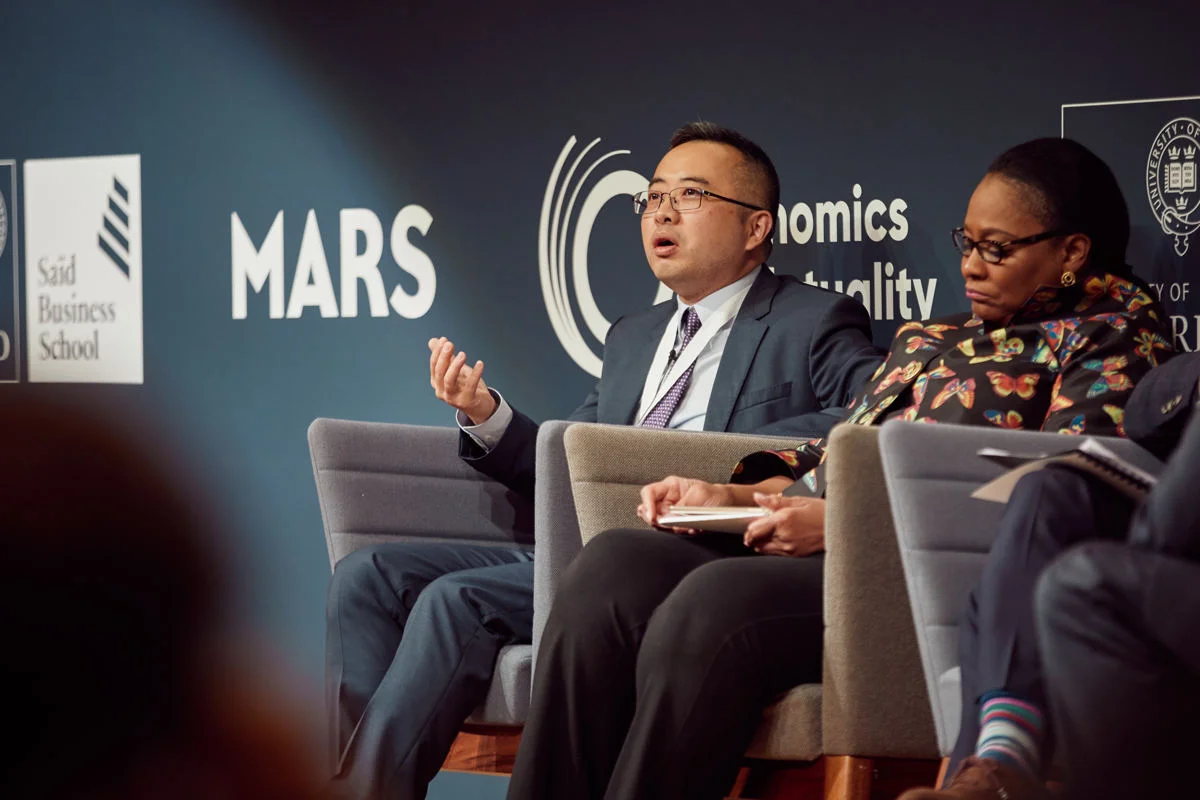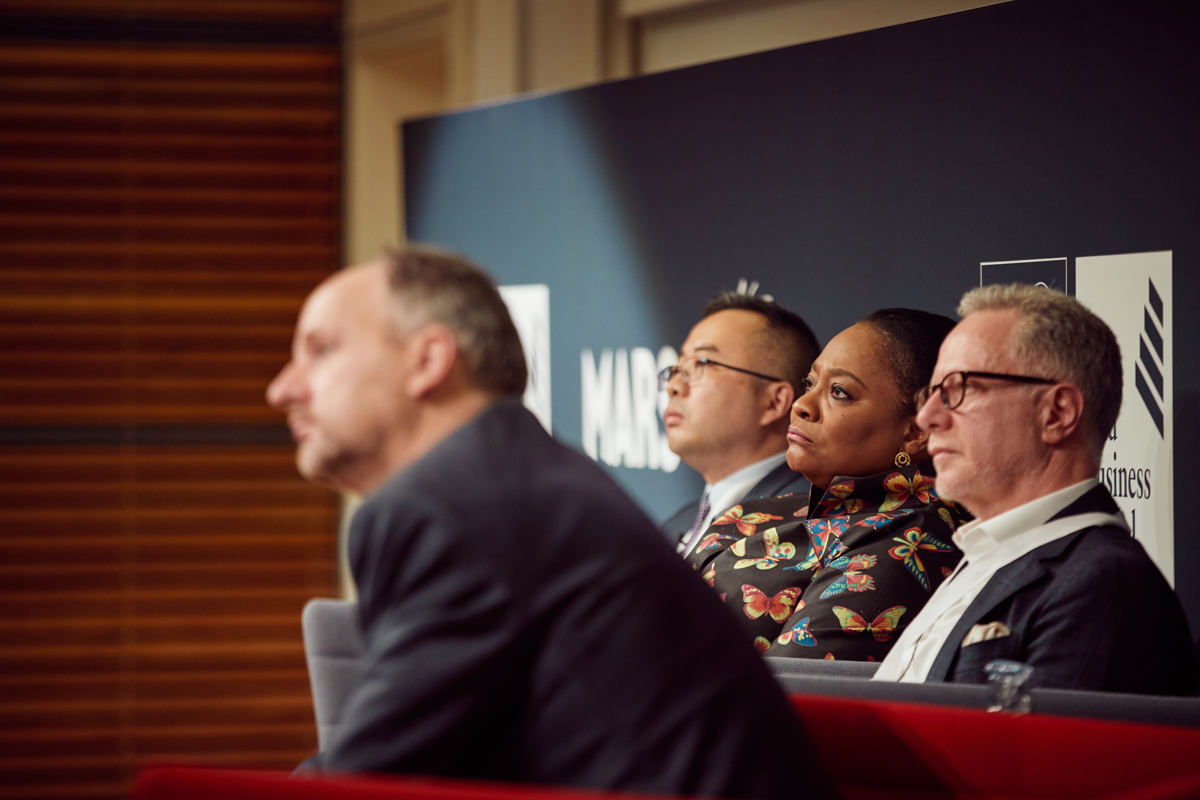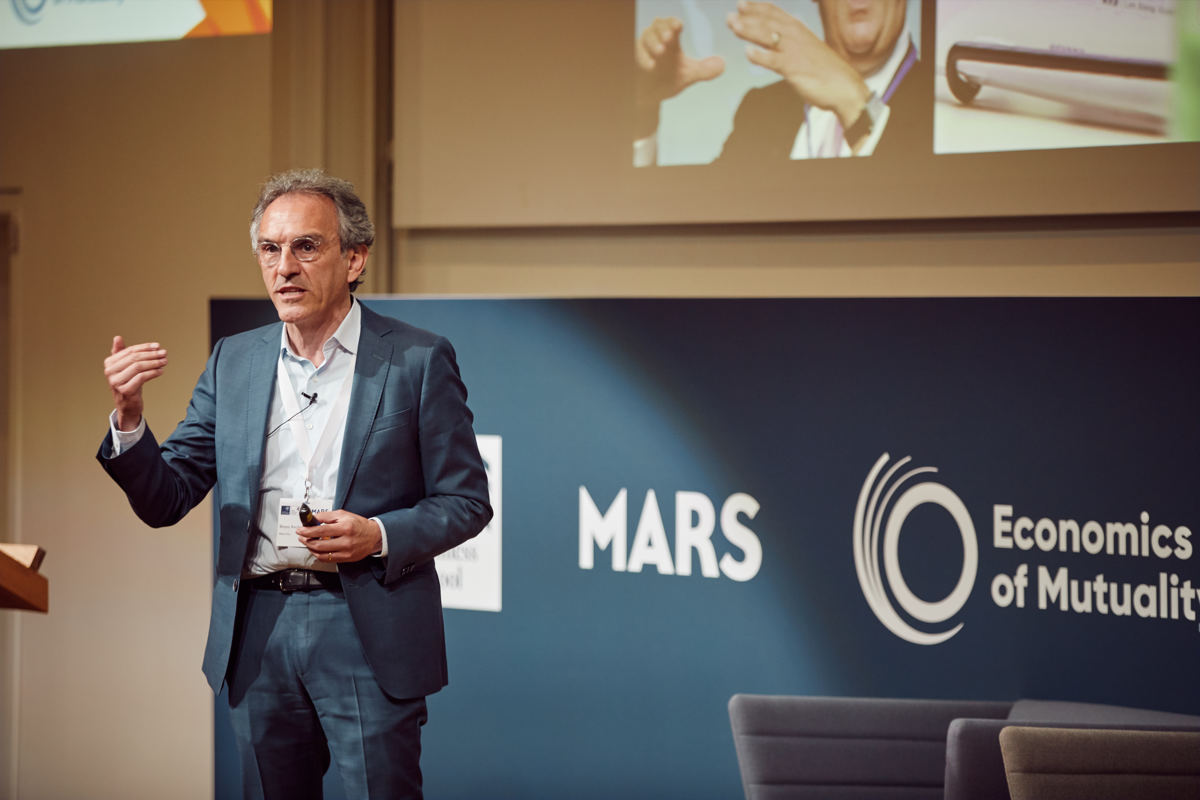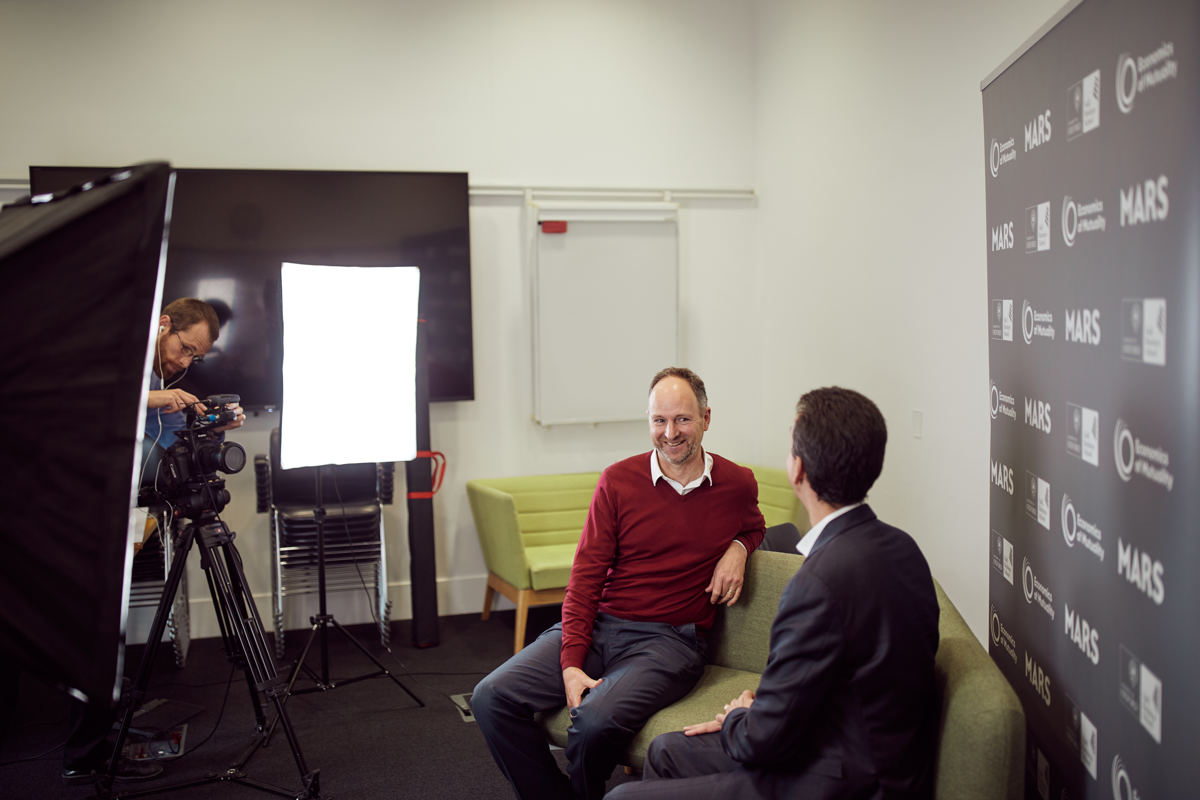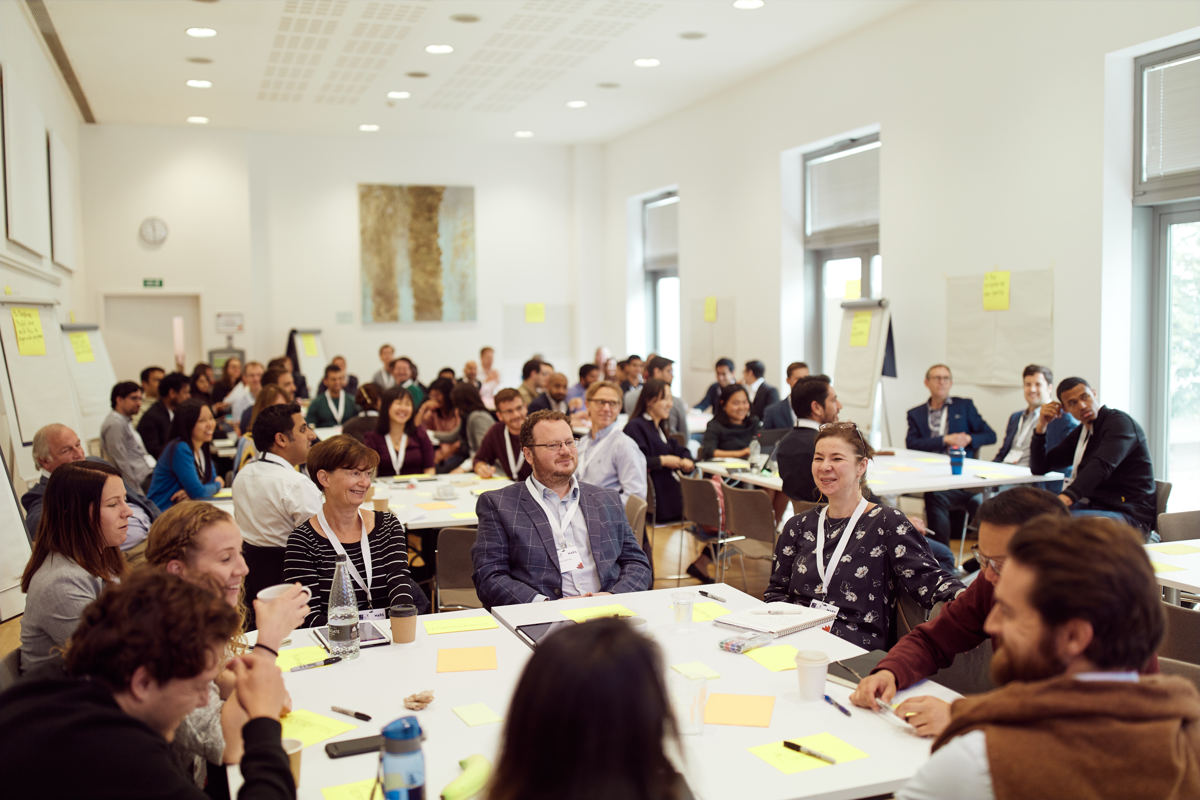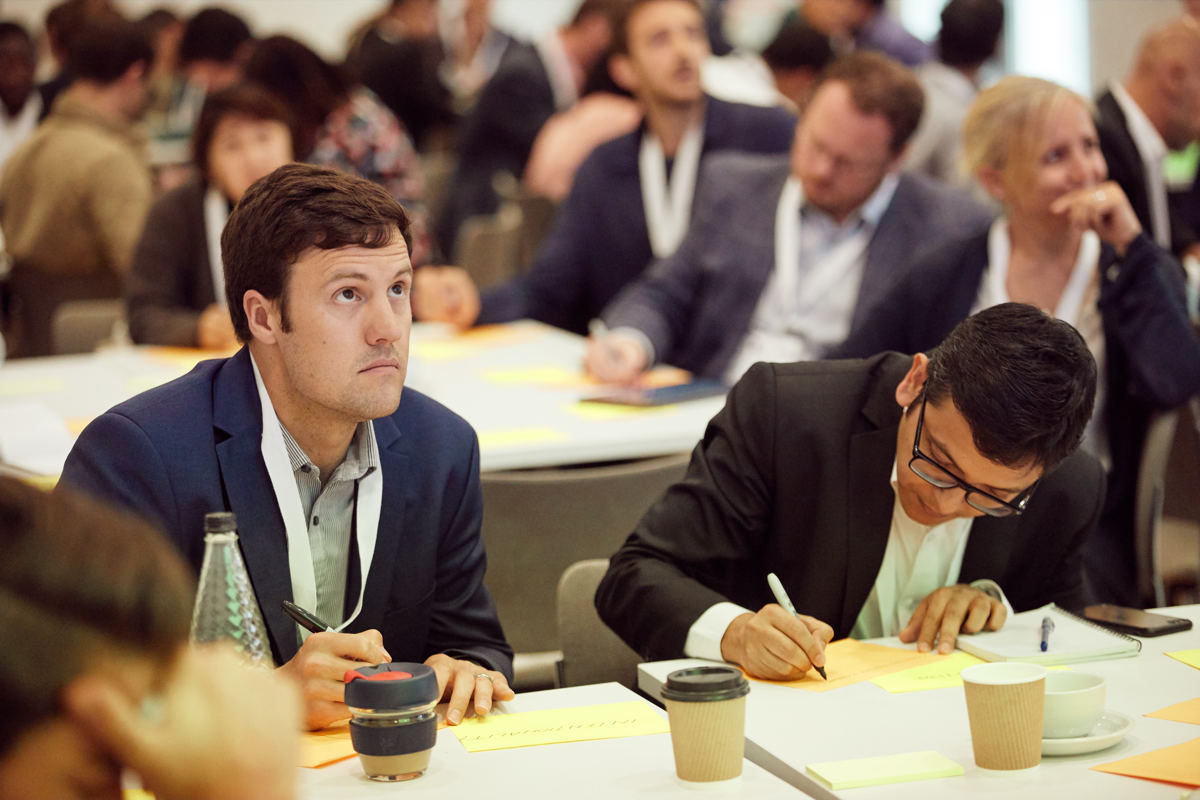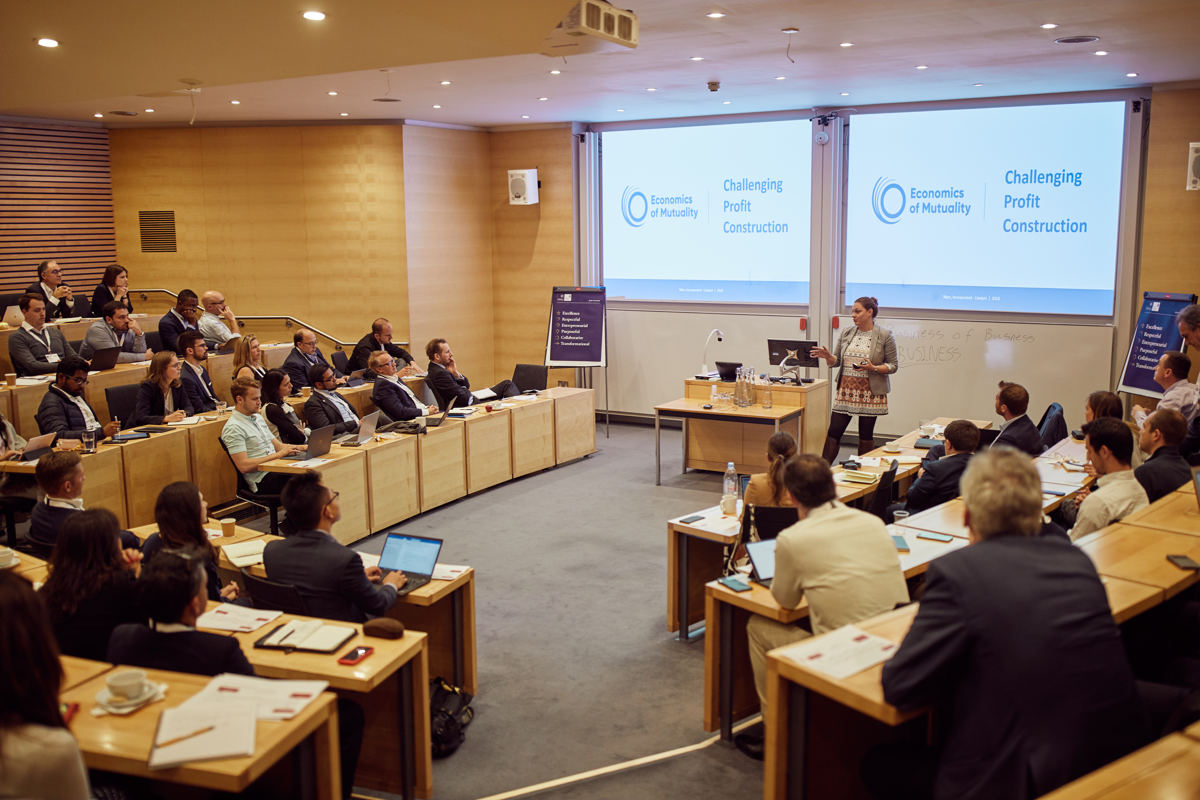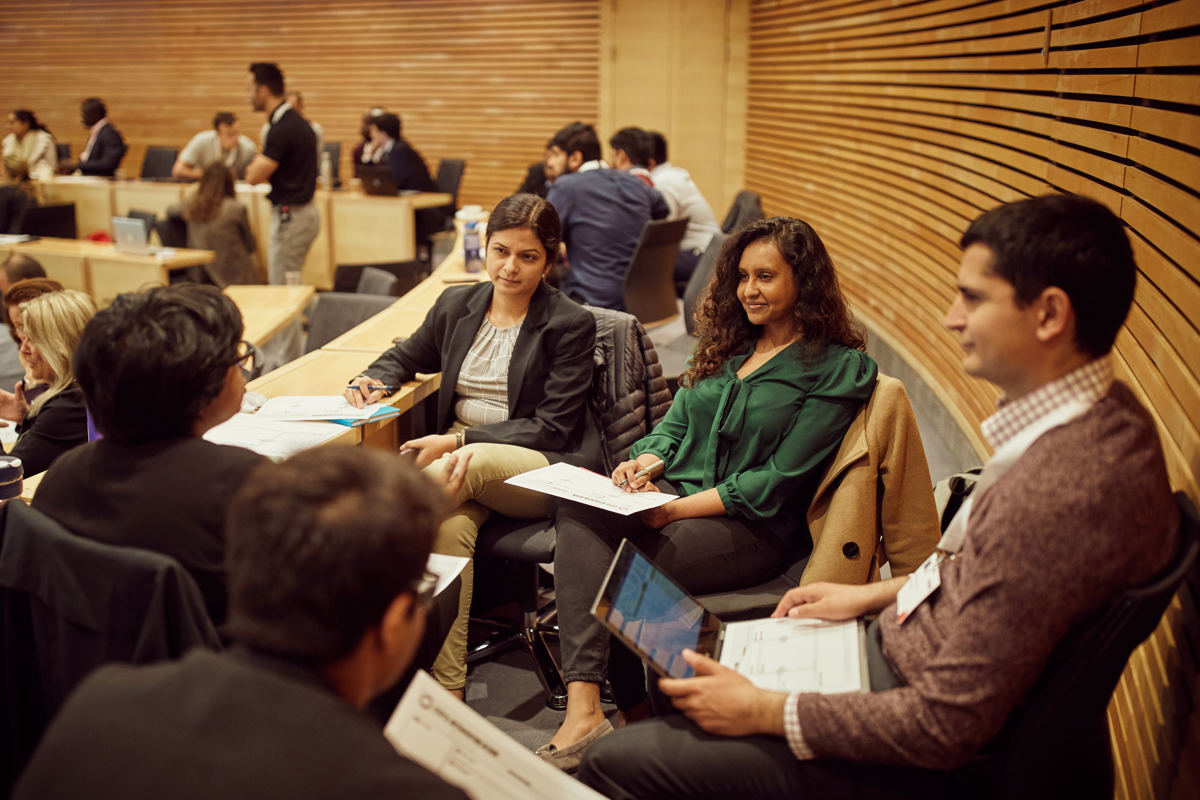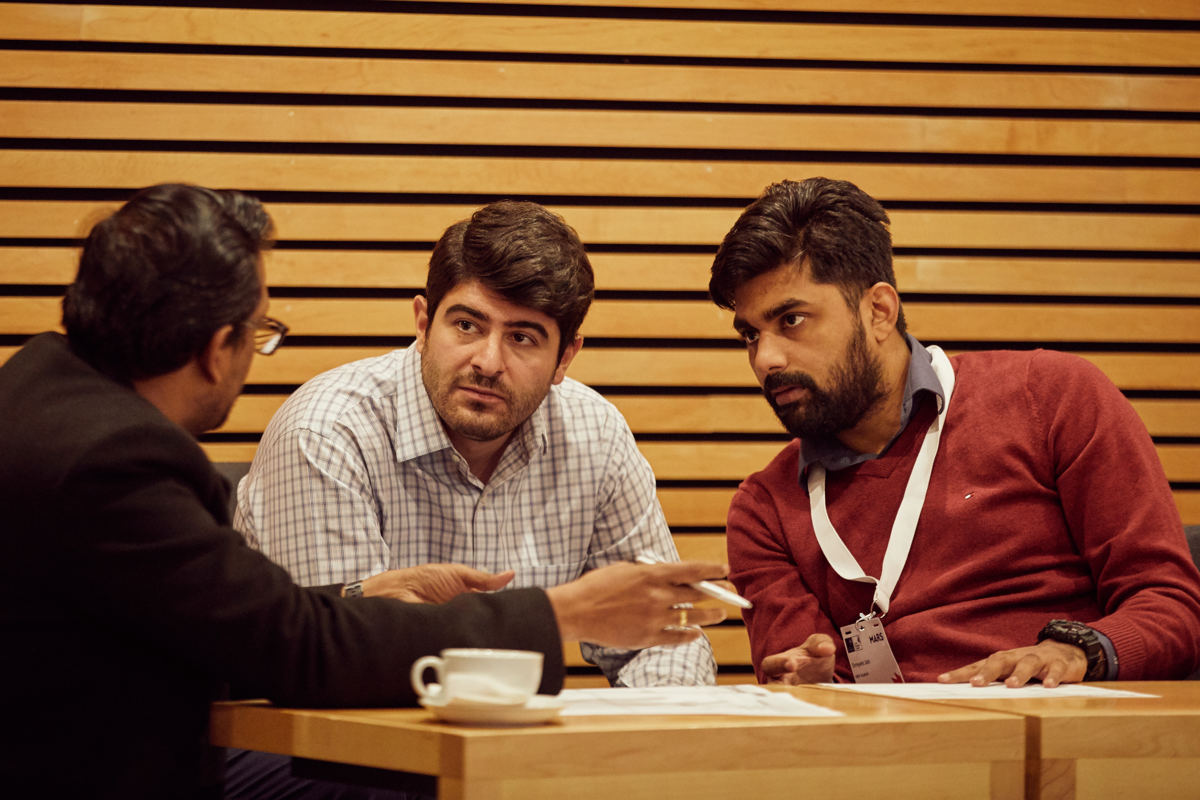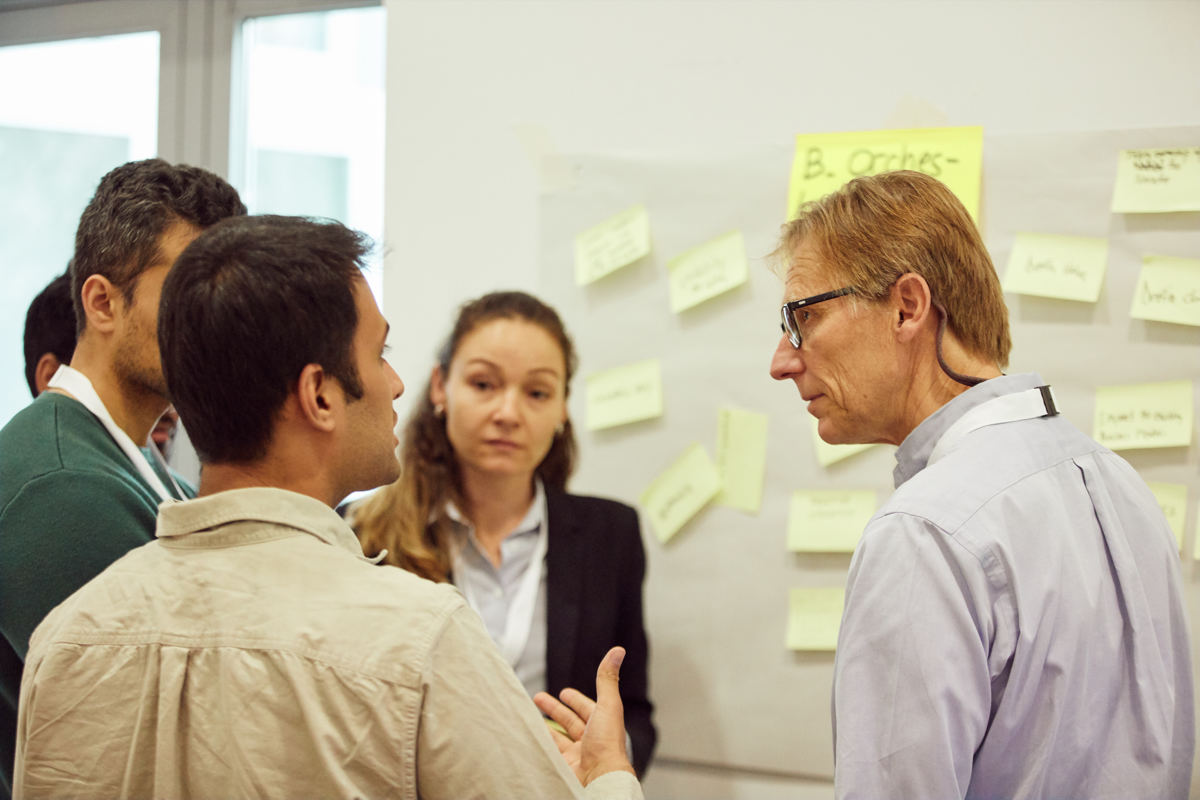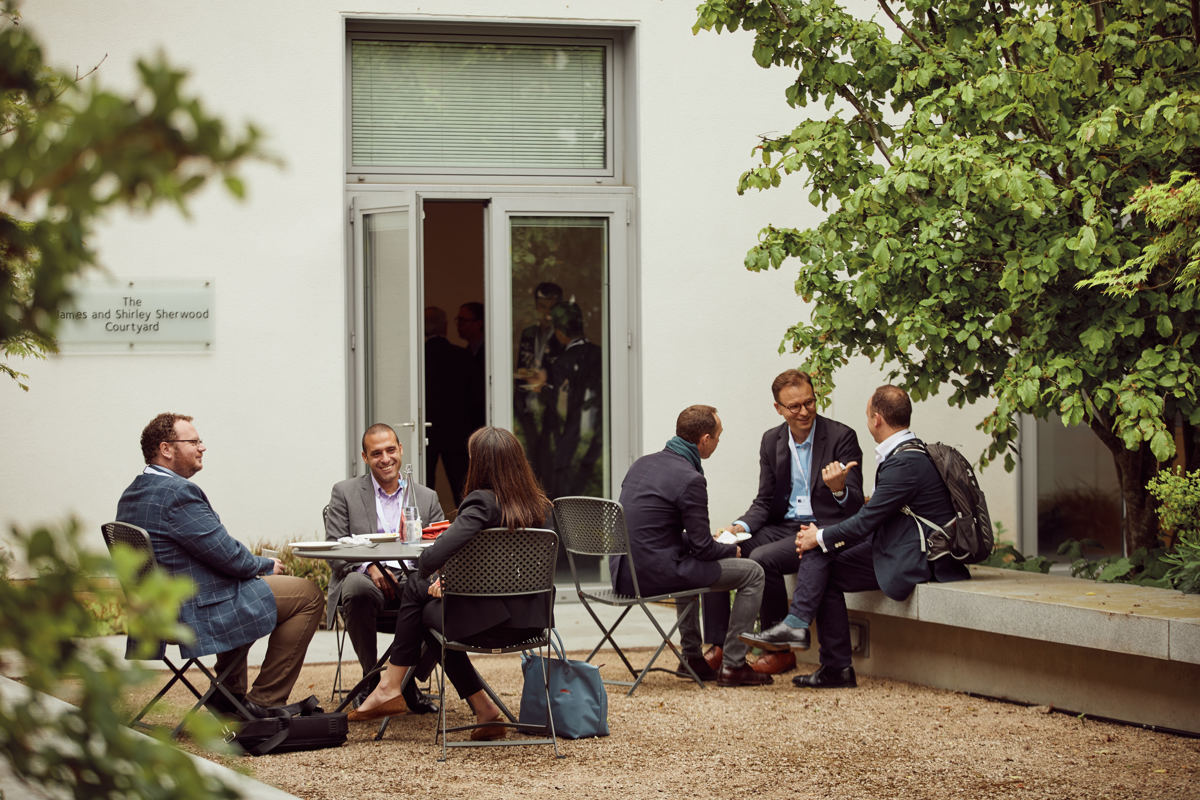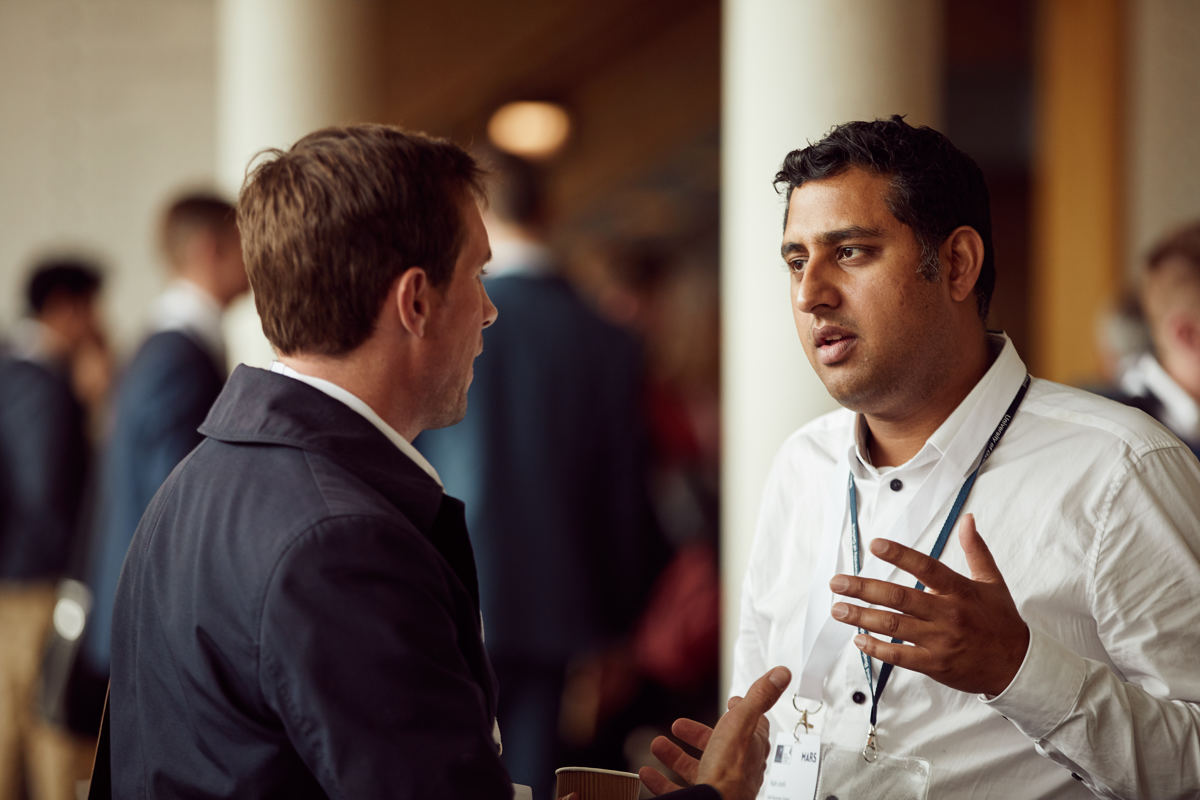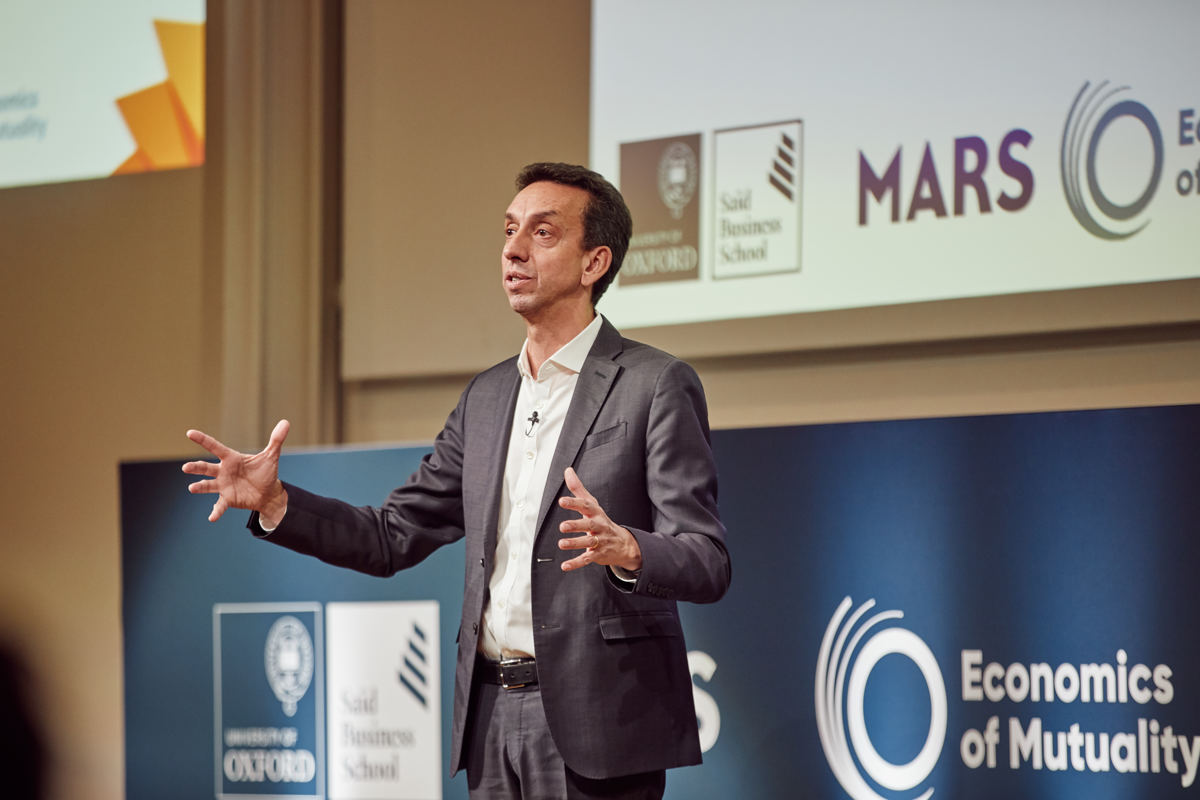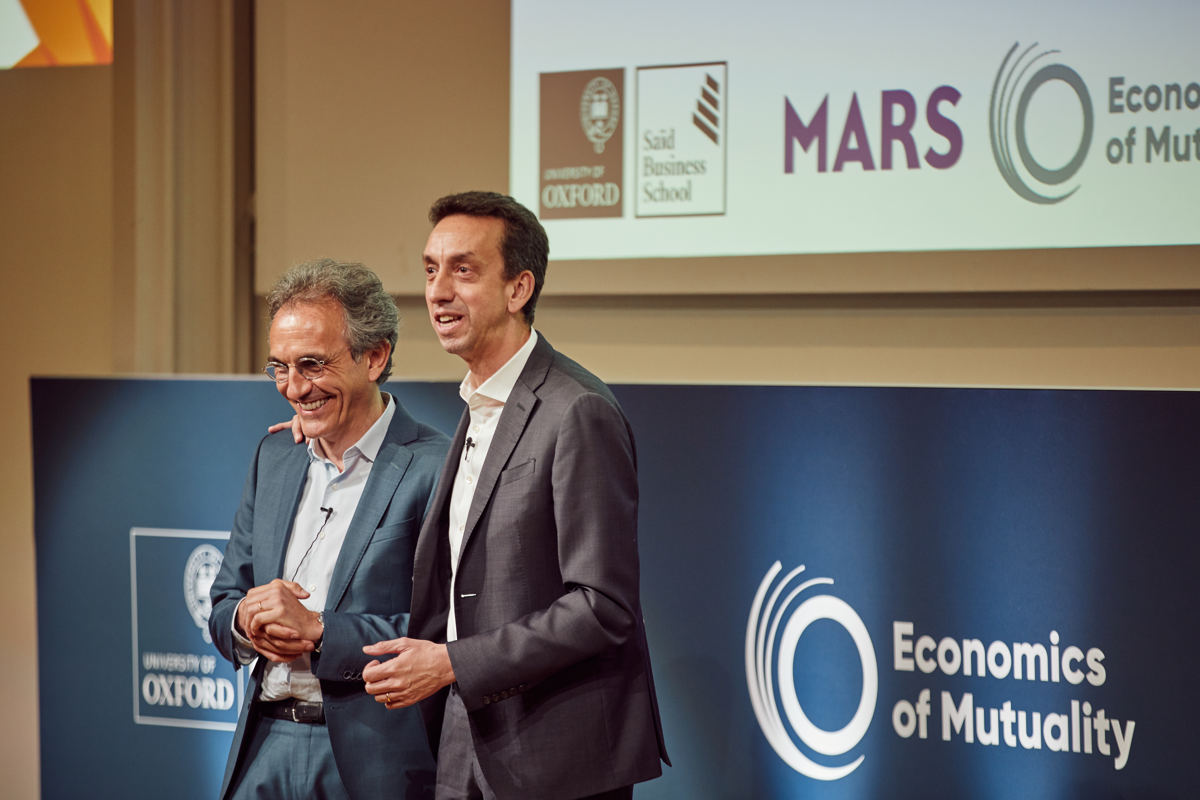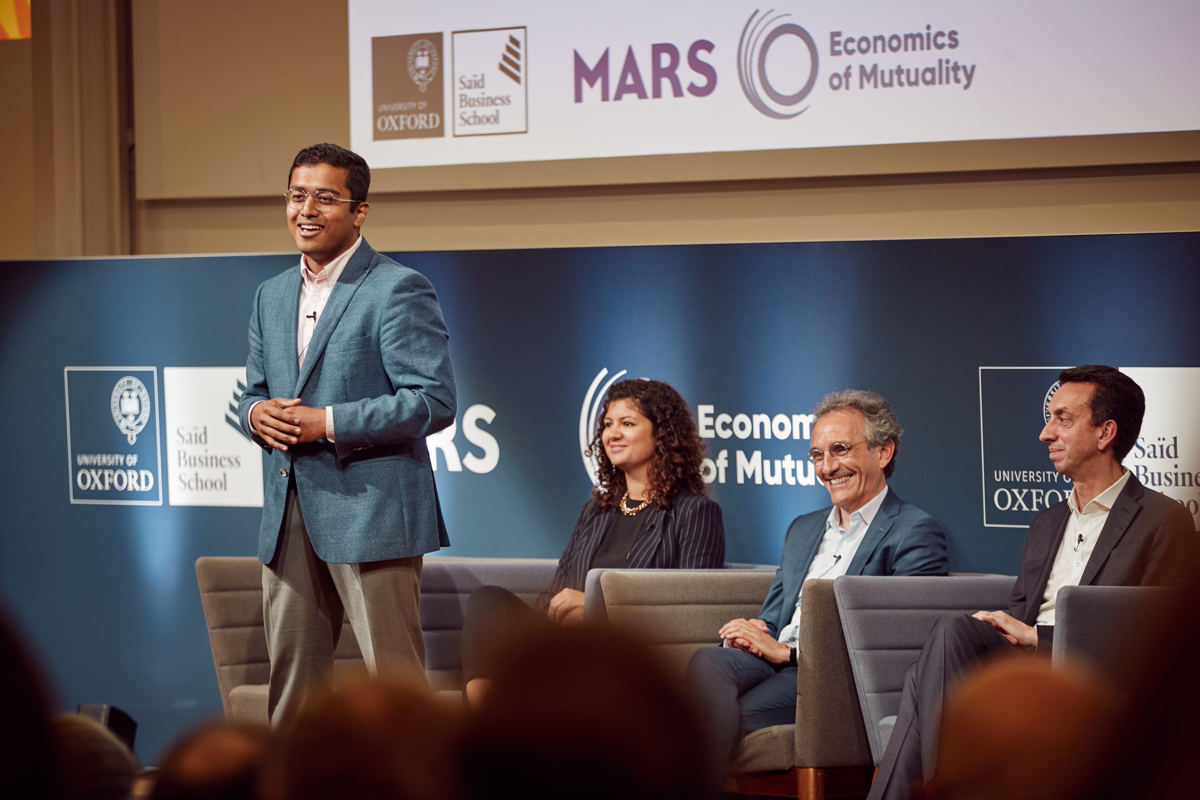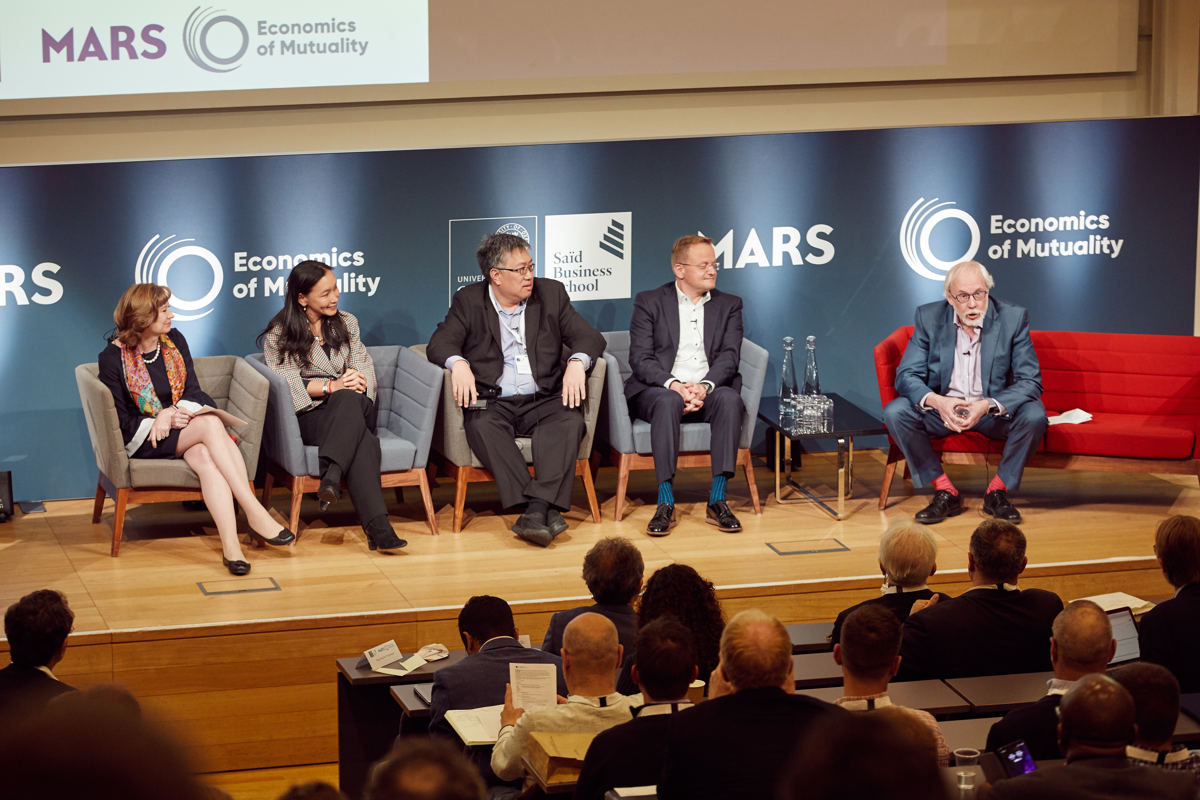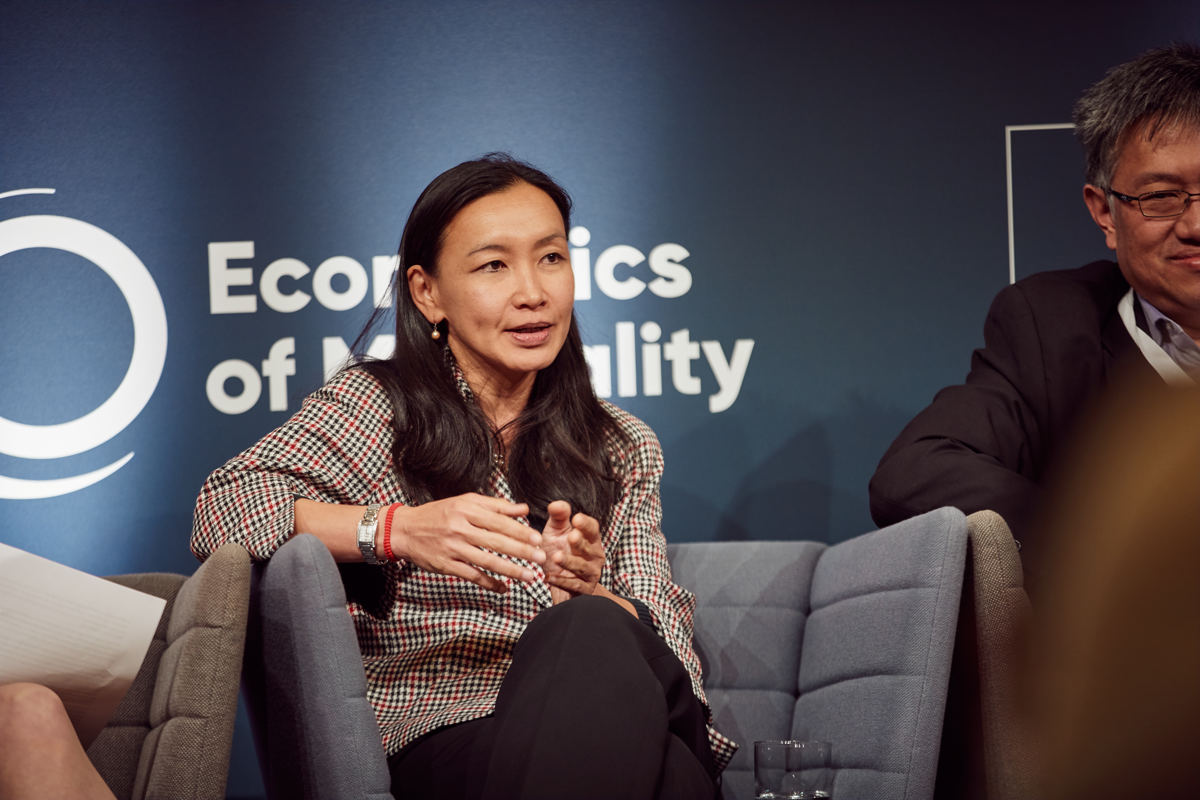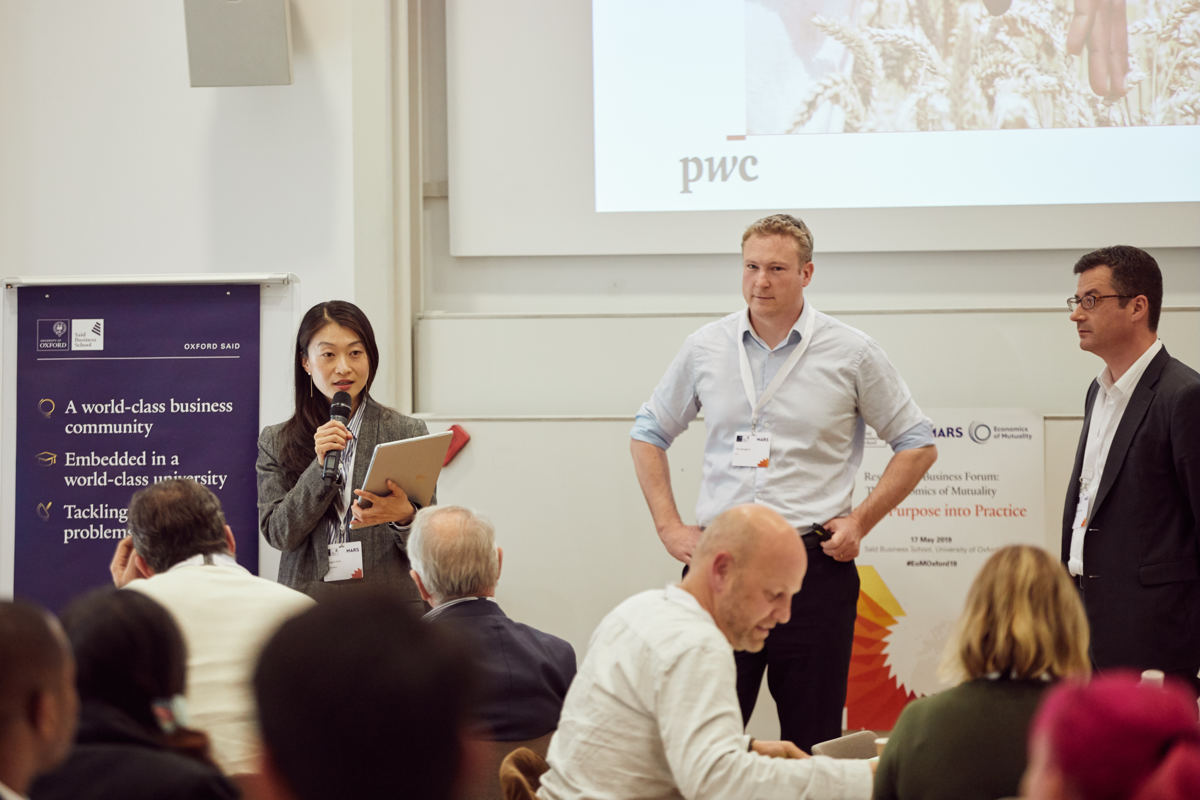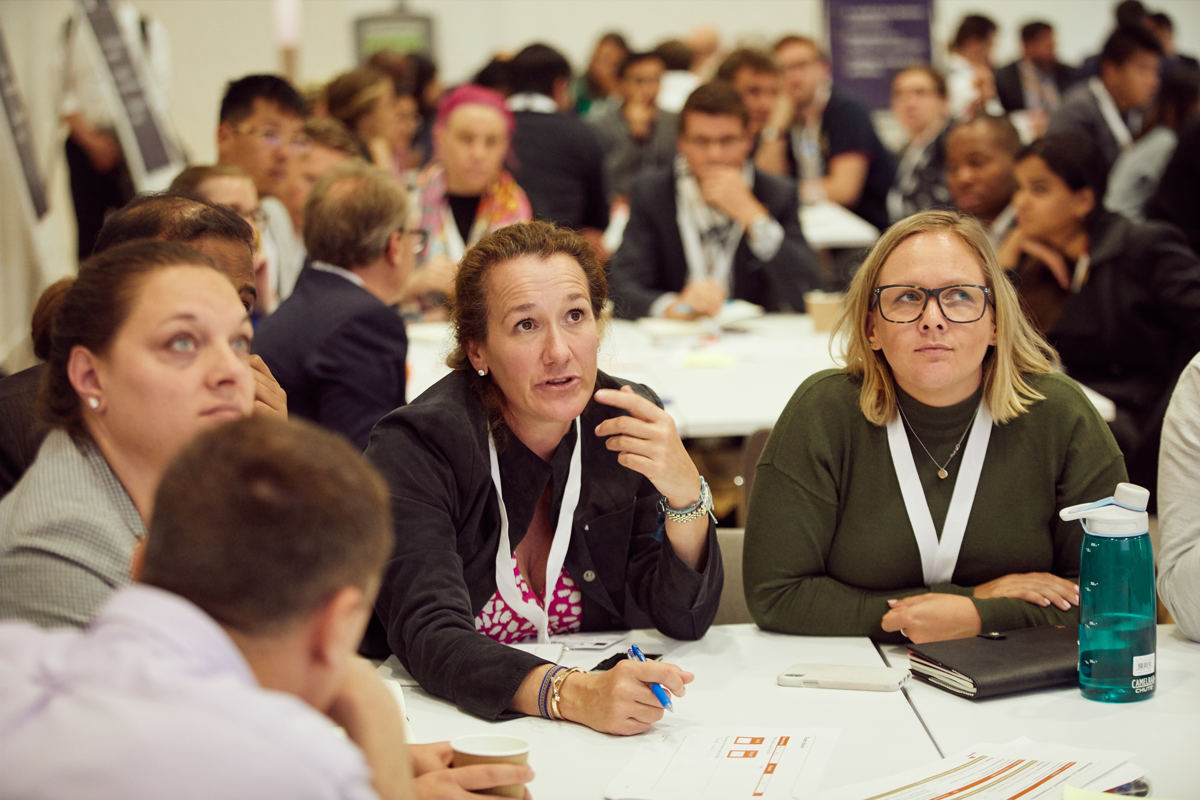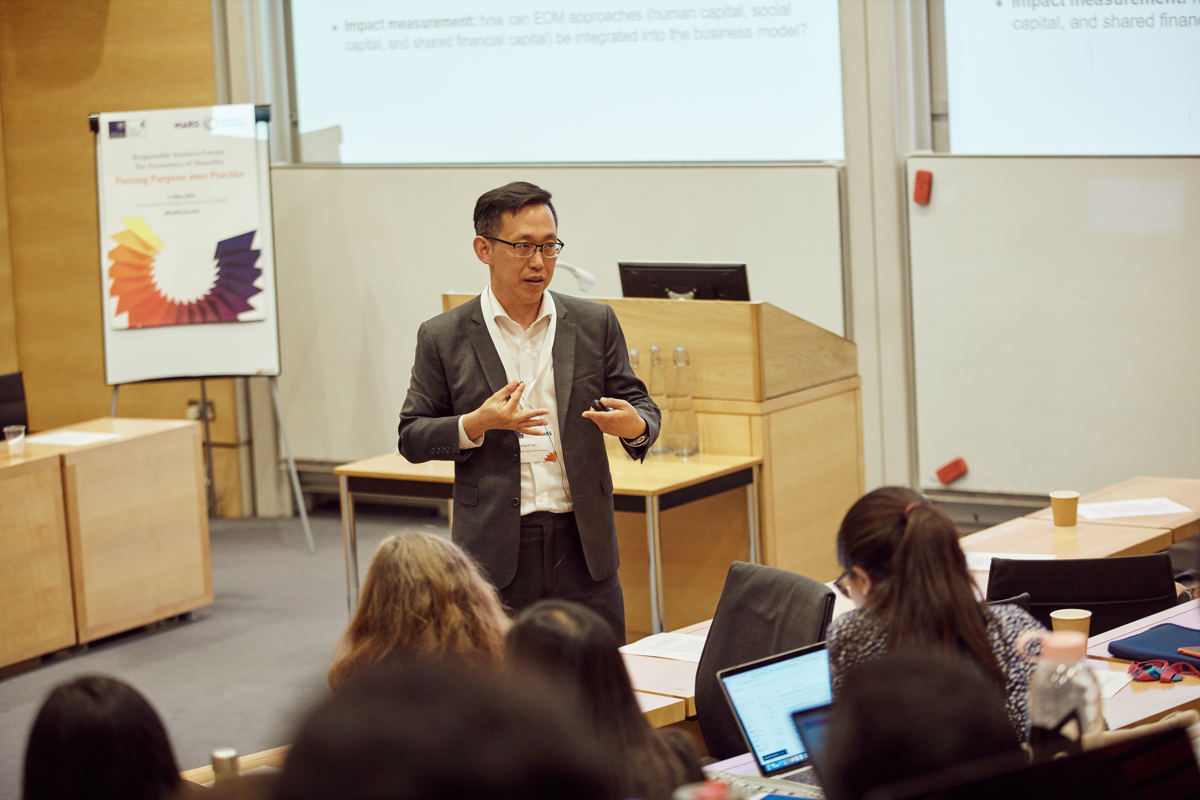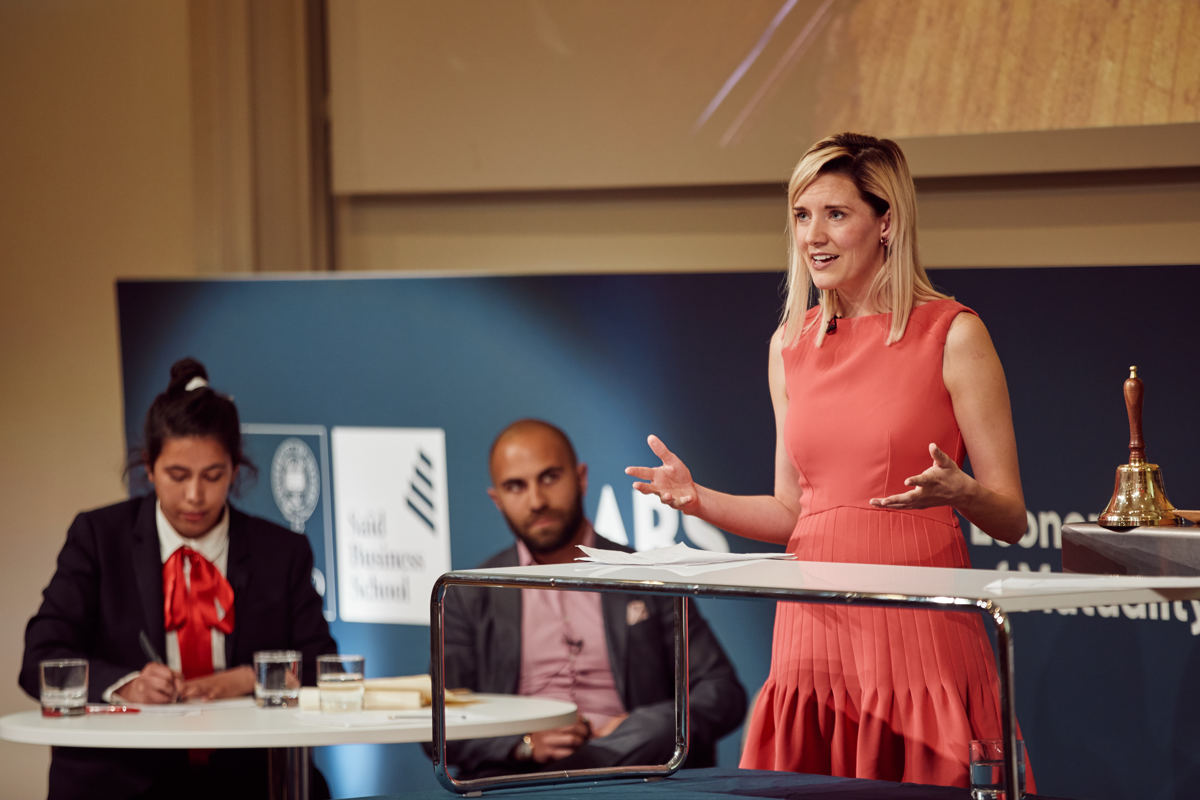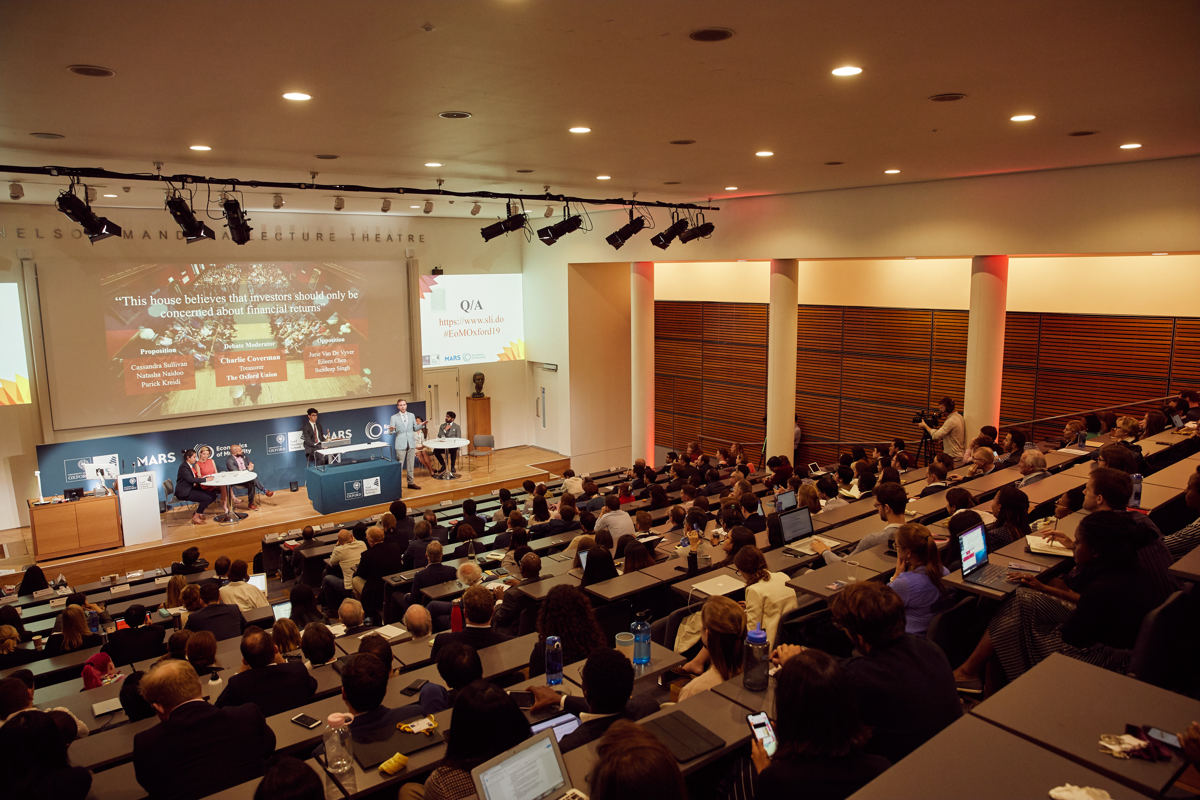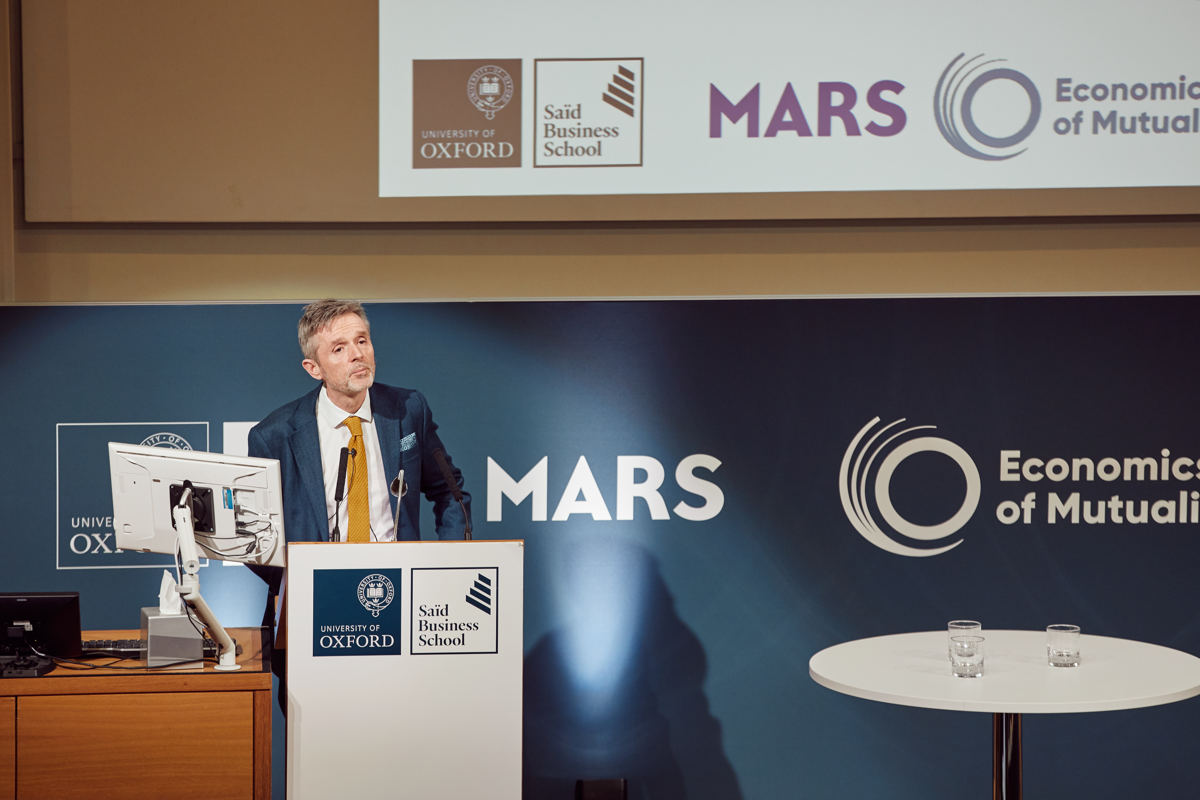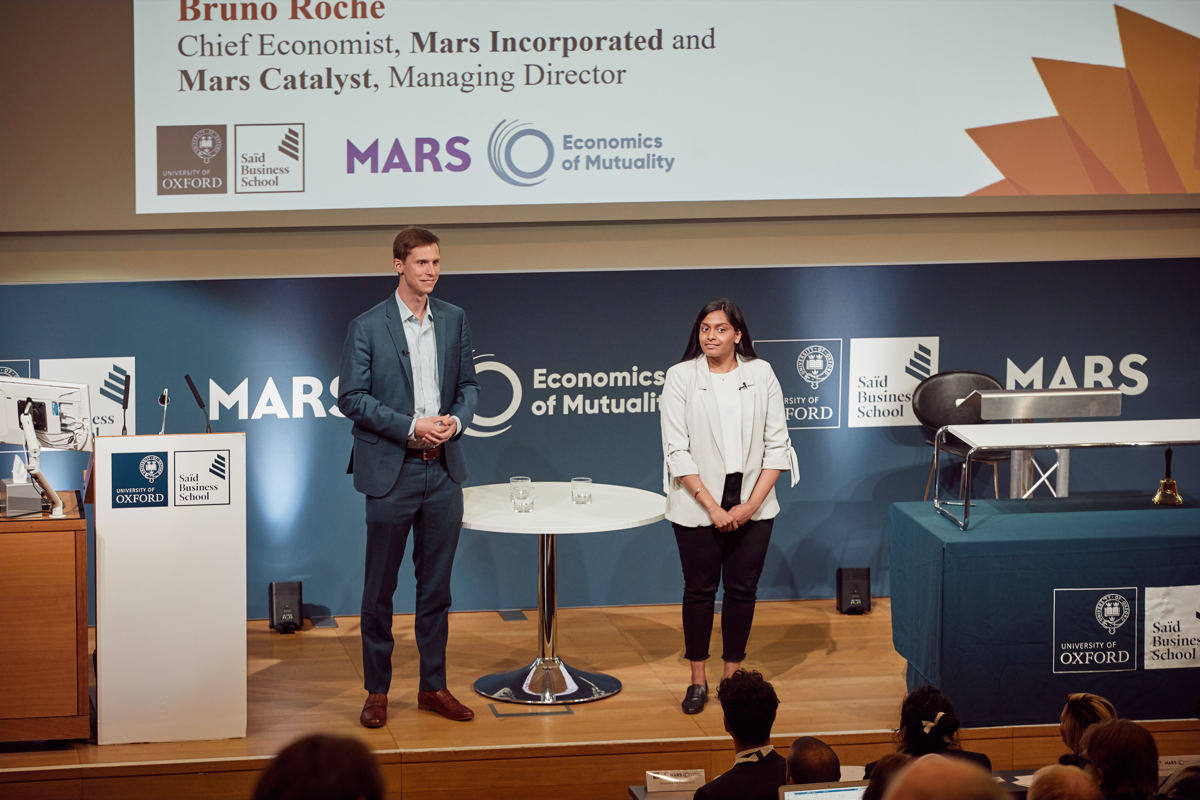
Powerful messages, inspirational stories, and practical workshops characterized the fourth annual Economics of Mutuality Forum at Saïd Business School, University of Oxford, on 17 May 2019.
Over 500 MBA students, business leaders, senior executives from foundations and NGOs, academics, investors, and government policymakers attended the Forum which was organized jointly by Oxford Saïd and Mars Catalyst, the thinktank of Mars, Incorporated, as part of their multi-year joint research program.
More than 10 years after a ‘giant boot had come down on the windpipe of the financial world,’ the after-effects of the financial crash of 2008 are still with us, said Shelby Coffey in his scene-setting speech. And yet little so far has changed. Despite a growing enthusiasm for demonstrating a beneficial social impact, and a growing awareness of the urgency of action on climate change, business is still hampered by an obsession with financial capital: what Coffey called ‘the oversold gospel of the bottom line.’
There is room for optimism, however, firstly in the changing nature of business itself. Whereas once assets were tangible, and could be bought and owned, now 88% of the assets of SMP 500 companies are intangible – brands and reputation, intellectual capital, social capital, and natural assets. So these assets cannot actually be owned, but companies are increasingly dependent on them, and they increasingly impact on them.
Secondly, as passionate speeches from MBA students demonstrated, there is a growing demand from young people and from consumers for businesses to demonstrate responsibility and purpose. 74% of Millennials are seeking meaningful jobs, and by that they expect more than a lofty description of corporate purpose that simply looks good on the website, or is enacted only in a Corporate Social Responsibility program that operates at the periphery of the business. They demand purpose, but they demand to see it in practice.
Full report of keynote speeches, panels, interactive breakouts and more
Main Session Recordings
1. Welcome and Programe Overview
2. Setting the Context
3. Forces Shaping Global Business
4. Introduction to EoM
5. The Power of Purpose in Business
6. Finance and Purpose in Business
7. Oxford Union Debate
8. Putting Purpose into Practice
9. Final Thoughts
How does one put responsible business into practice ... so that we can look forward to businesses that are not the source of growing inequality and social disquiet? That are not the cause of environmental degradation? And that are not at the bottom of the list of professions that people around the world trust? But that they are the solutions to inequality, the solutions to environmental degradation, and that they will be at the top of the list of professions that people trust.
Colin Mayer
Peter Moores Professor of Management Studies
Saïd Business School, University of Oxford

Practicing Purpose at Scale
The Economics of Mutuality started life as an attempt to answer a question posed in 2007 by a Mars shareholder — ‘What is the right level of profit?’ Since then, it has evolved into a breakthrough management innovation and a new growth model that empowers business to adopt a more complete and mutual form of capitalism that is fairer and more efficient than the dominant profit-maximizing business models of today.
It is based on four management principles: put purpose at the center; embrace your ecosystem; financial capital is necessary but not sufficient; and the traditional profit contribution is misleading. In discussing how to put those principles into action, a number of key lessons emerged.
A corporate purpose must be defined and articulated as seeking to solve a meaningful challenge – a simple description of what the business does or a statement of its values is not enough. The people who are involved in or affected by this purpose define the boundaries of the ecosystem in which the business operates, which goes far beyond the traditional boundaries of the firm.
Delivering the purpose will also draw on four different forms of capital, or types of resources: the land and environment (natural capital), skilled and knowledgeable men and women (human capital), communities (social capital), and money (financial capital). Understanding and valuing each of these capitals, and measuring their creation or depreciation can result in a fully mutual account of profit and loss.
Putting purpose into practice will require new thinking, courage, boldness, and humility. But more than anything it will require knowledge. Mars’s decision, announced at the conference by Jean-Christophe Flatin, that it will be making the knowledge created by the Economics of Mutuality project freely accessible to all through the creation of a new foundation, will enable leaders to start ‘making decisions that finally reconcile the contradictions that have been in opposition for centuries.’
Case Studies
Academica:
Closing the Income Achievement Gap
BASF:
Impact Valuation Informing Management Decisions
Conservatorio:
Urban Regeneration Without Gentrification
LafargeHolcim:
Integrated Reporting in the Construction Industry
SAP:
Developing Integrated Thinking Through Reporting







